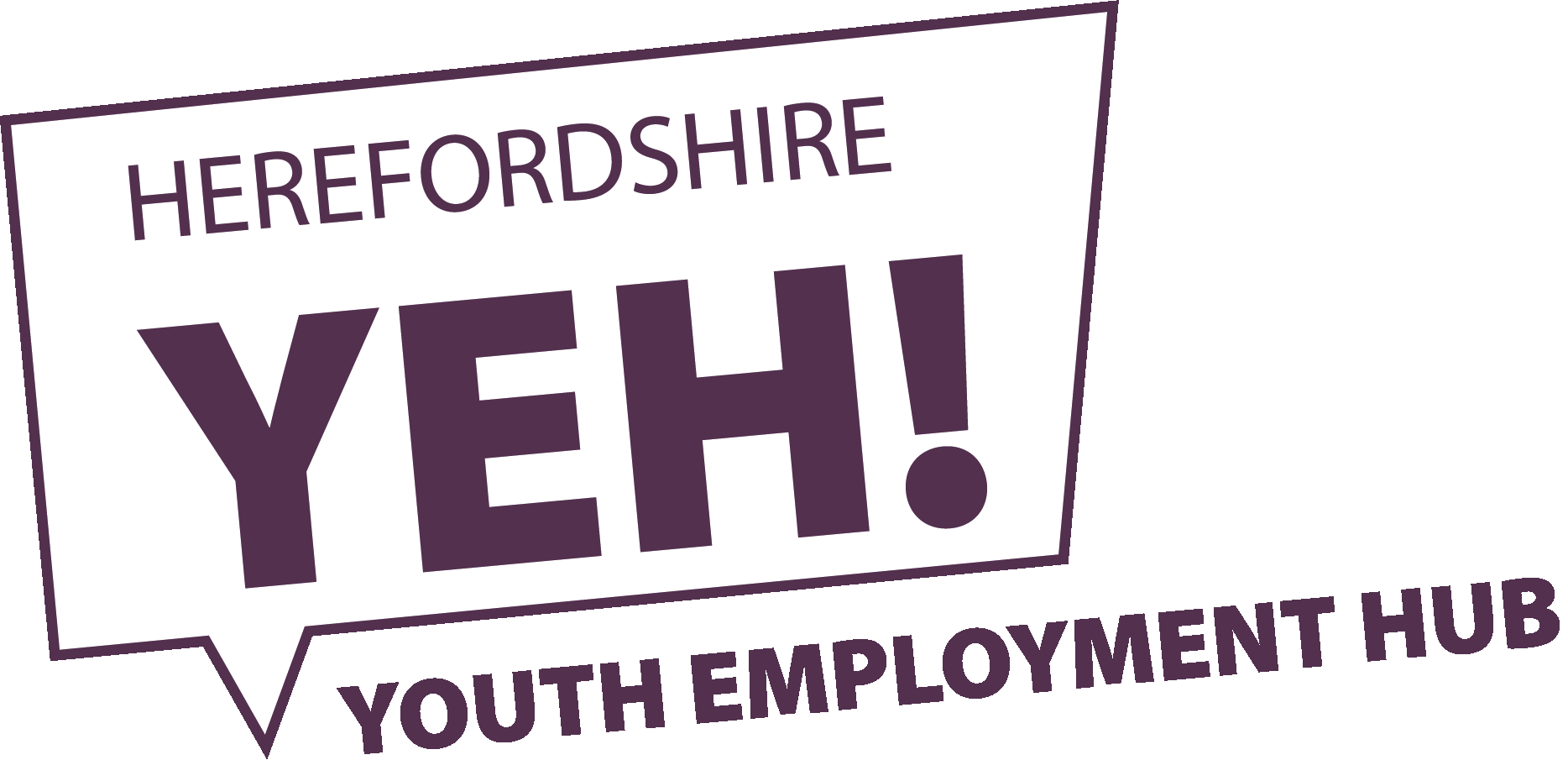
Get help from the Youth Employment Hub
We're here to help you be the best you can be. Call us on 01432 261515 or:
Complete our referral formBe money smart: essential tips for young adults
 Budget basics
Budget basics
Know what your finances look like and create a budget to manage them.
Start by tracking your income and expenses. Use budgeting apps or a simple spreadsheet to learn more about how to create a budget and stick to it for an extended period of time. You can then track where your money goes each month.
Always aim to spend less than you earn and plan for essentials and savings.
Young Minds have some great tips and resources on managing your money.
Save regularly
Start saving – even if it's small. One of the best ways to develop financial discipline is to consistently put away a small amount of money over time. Try to save a portion of your income each month, no matter how small. This can help you to build up an emergency fund to cover unexpected costs like car repairs or medical expenses.
If you open a savings account with a top interest rate and deposit the same amount each month, you'll build up a healthy pot over time.
If you have a sum you don't need immediate access to, you can invest it in a high-interest savings account. Get in touch with your bank or a financial advisor for more information.
Build credit wisely
Most people have debt of some kind, but it's how you pay it back that matters. Use debit cards wherever possible, and resist taking out loans or getting a credit card unless necessary.
If you're new to credit, consider getting a student credit card or becoming an authorised user on a responsible adult's card.
Responsibly using credit could boost your credit score and build a credit history if you don't have one - but you should always pay off your outstanding balance in full every month.
Avoid unnecessary debt
Only take on debt for essential needs, like education or a reliable vehicle. Avoid high-interest debt from payday loans or credit cards with large balances.
Make sure you keep track of any debt - it's very tempting to use buy now pay later services such as Klarna and Clearpay, but debt soon mounts up.
Invest early
Learn about investing - the earlier you start investing, the better your money can grow.
Explore options like low-cost index funds or apps for micro-investing. Make informed decisions and start small if you're new to investing. Always get professional financial advice.
Smart spending
Keep your costs under control - and try and find ways to reduce your monthly spending habits.
If you look at your costs closely enough, you're bound to find some excess somewhere, whether it's subscriptions you no longer use or shopping online regularly.
Distinguish between wants and needs. Look for discounts, use vouchers, and compare prices. Avoid impulse purchases and make sure your spending aligns with your budget.
Financial goals
What are your personal financial goals? Where do you see yourself in five, 10 or 20 years?
Understanding the nature and level of financial freedom you want is the first step to creating a plan for achieving it.
Set clear financial goals, whether it's saving for a gap year, a car, or future education. Having specific targets helps you stay motivated and focused.
Learn continuously
Learning how to save money and adopting healthy financial practices is essential for anyone, regardless of age. Financial education is the key to unlocking better money habits and bringing your goals to life.
You don't need a degree in finance to be good with money (although it does help), and there are plenty of online resources to take advantage of. Educate yourself about personal finance through books, podcasts, or online resources.
Understanding money management improves your confidence and financial stability.
Seek advice
Don't hesitate to ask for advice from financial professionals, trusted adults, or local services like Herefordshire's youth support organisations. They can offer valuable insights and personalised guidance.
Don't let problems build up - ask for advice early.
For help and support visit Turn2us.
Stay informed
Keep up with financial news on the local and national economic trends and changes in interest rates. Staying informed helps you adapt your money management strategies effectively.
Remember we are here at the Youth Employment Hub and can offer you advice and guidance on managing your finances, no matter how big or small.
Keep an eye on our news and events page - we will be hosting free money management workshops soon.
